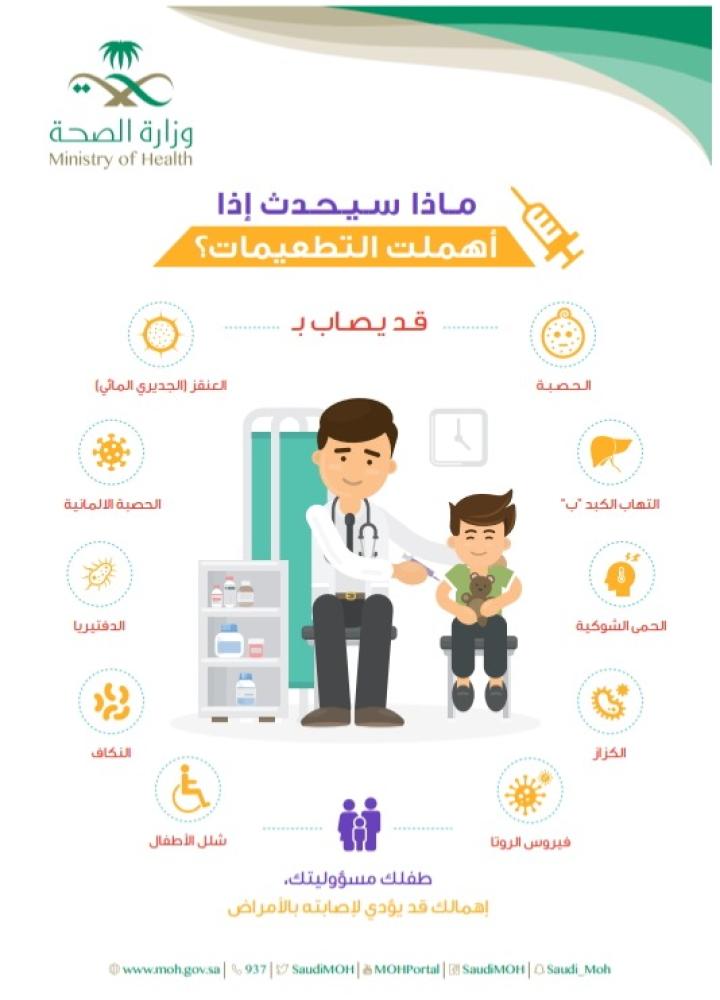Vaccines are one of the most important medical innovations that have contributed to saving millions of lives over the decades. For children, vaccinations are essential to maintain their health and protect them from serious infectious diseases. In this article, we will review the importance of vaccines for children and the reasons why they should be vaccinated.
#### 1. **Protection from infectious diseases**
Vaccines protect children from infectious diseases that can be serious or fatal. Some of these diseases include:
- **Measles:** which can cause serious complications such as pneumonia and encephalitis.
- **Polio:** which can lead to permanent paralysis.
- **Whooping cough (pertussis):** which can be fatal, especially for infants.
#### 2. **Achieving herd immunity**
When a large number of children are vaccinated against a certain disease, it becomes difficult for that disease to spread within the community. This concept is known as collective immunity or herd immunity. Herd immunity protects individuals who cannot receive vaccines for medical reasons such as a weak immune system or severe allergies.
#### 3. **Preventing health complications**
Some vaccine-preventable diseases can cause long-term health complications. for example:
- **Mumps:** It can lead to inflammation of the testicles in males and inflammation of the ovaries in females, and may cause infertility.
- **German measles:** It can cause serious birth defects if it infects a pregnant woman.
#### 4. **Reducing mortality rates**
Vaccines have contributed significantly to reducing mortality rates among children. Before vaccines were available, infectious diseases were a major cause of childhood death. Thanks to vaccines, death rates have decreased dramatically, saving the lives of millions of children.
#### 5. **Economic Saving**
Although the costs of vaccines may seem large in the short term, they bring significant savings in the long term. Treating infectious diseases and their complications requires high medical costs, in addition to the loss of productivity as a result of the disease. Vaccines reduce these costs by preventing disease from the beginning.
#### 6. **Promoting public health**
By vaccinating children, the overall health of the entire community is enhanced. Healthy children can fully participate in school and social activities, contributing to the development of healthier, more active communities.
#### 7. **Progress towards eliminating diseases**
Vaccines contribute to progress towards eliminating infectious diseases. An example of this is the complete eradication of smallpox thanks to global vaccination campaigns. By pursuing vaccination programs, the same goal can be achieved with other diseases such as polio.
### Conclusion
Vaccines are one of the most important preventive means we have to protect children from serious infectious diseases. By vaccinating children, we ensure a healthy future for them and protect our communities from disease outbreaks. Parents must ensure that their children are vaccinated according to the recommended schedules to ensure their safety and the safety of the entire community.

